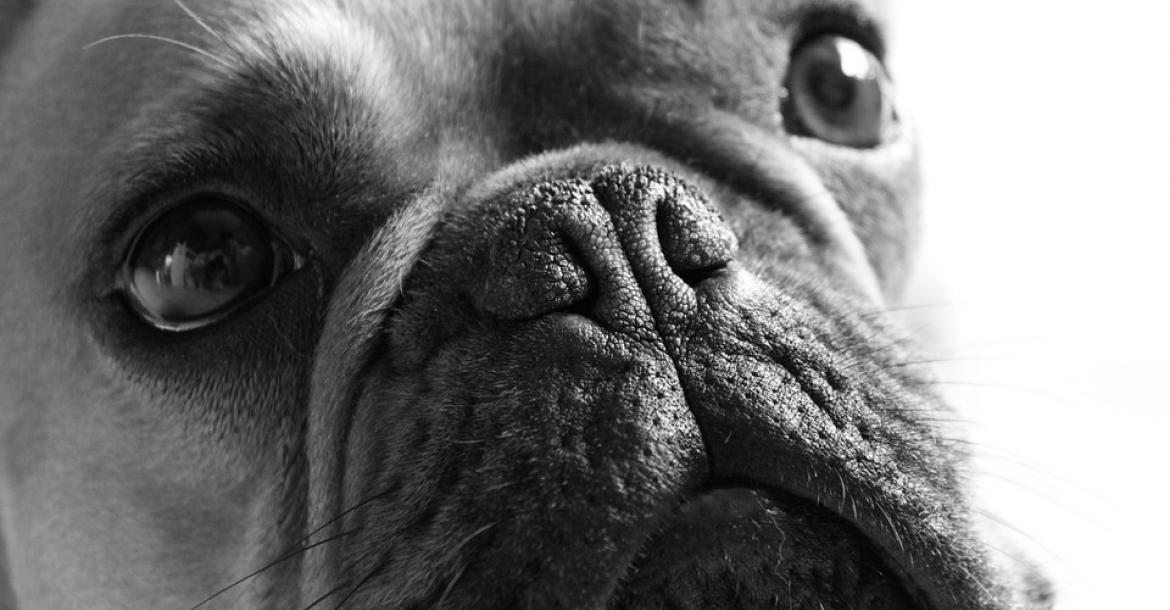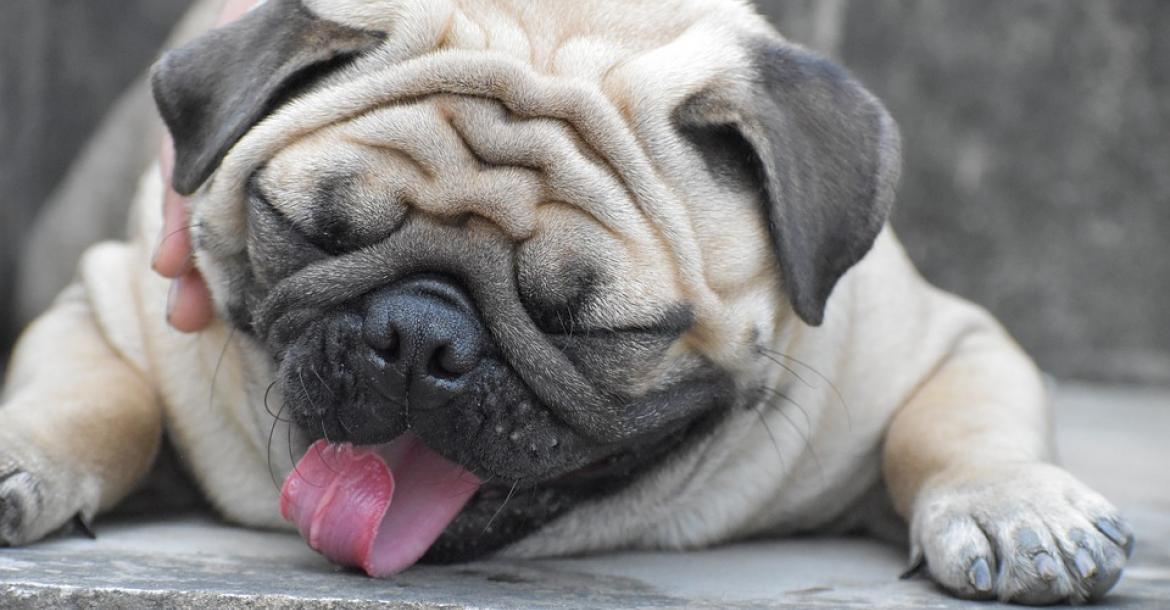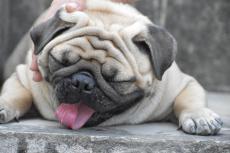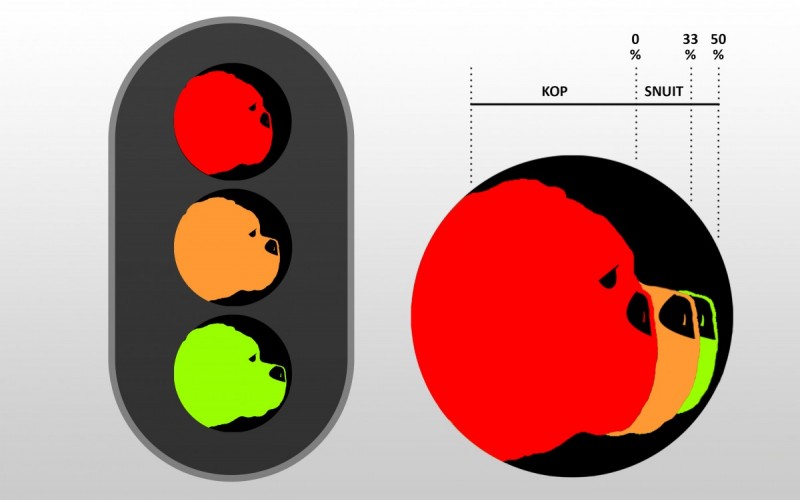Many breeders of brachiocephalic dogs can expect a visit from authorities
As from now the NVWA, Dutch Authorities for Animal Welfare (amongst others) can use the criteria drawn up by the University of Utrecht at a much more targeted level. And, the NVWA says, they will! There are still several enforcement requests and notifications that, now that there are clear criteria specifying Article 3.4 from the Decree on Holders of Animals, can be checked by the employees of the Food and Consumer Product Safety Authority.
The NVWA will make no distinction as to who the breeder is. "When we receive reports of possible violations, we will always deal with it," said a spokesperson. This also means that - substantiated - reports about "bread breeders", the well-known large commercial institutions, will be processed.
There is a difference between reports and enforcement requests. Enforcement requests are more work for the NVWAand the NVWA must always decide by request. Literally “A request to take enforcement action against the violation of legal regulations, and where decisions are made on the basis of a decision. A decision to enforce a request for enforcement must be made if the request apparently amounts to a specific request for enforcement of a particular company / situation, such as the application for a decision, for example an administrative fine, the closure of a company or withdrawal from the market. of products. ”Enforcement requests are almost always made by organizations or companies, although in principle a private individual can submit it. A enforcement request is also more difficult to submit, because there must be a very clear reason to submit such a request to the NVWA. "I think he or she breeds with short muzzles", as an example, is insufficient for a request for enforcement. The latter is more a report. The NVWA states: “A report of a violation of legal regulations (no enforcement request). Information from third parties that may be relevant for the NVWA to do something about it or to become acquainted with it.” But the NVWA says reports are always taken seriously. However, a decision or further prosecution does not have to occur from a report.
And it is not difficult to find violations, the litters are still on the site of the Raad van Beheer. For short-faces dogs without (FCI) pedigree there is of course Marketplace, or Puppyplaza. The breed clubs themselves often publish the litters. But actually certain organizations already submitted plenty of enforcement requests to provide the NVWA with many months of work.
The availability of the criteria for "Article 3.4. Breeding companion animals 1. It is forbidden to breed companion animals in a way that affects the well-being and health of the parent or offspring. ”And further paragraphs of this article mean that the NVWA now has more tools to handle the reports and especially to follow enforcement requests that were already there, and that are still being added, well. In particular, Dier & Recht has in the meantime submitted various enforcement requests against short-beak breeders, but also against breeders of certain types of purebred cats, etc. Further research is now being done on this. Veterinarians are also not spared thereby, the warning from the KNMVD that veterinarians who actively and consciously participate in breeding against the law, in this case article 3.4, can be co-perpetrators, and therefore - in the extreme case - are also punishable.
From warning to thousands of euros
Those who read the messages of certain breeders on Facebook could think that things are not so bad. But certainly for those who repeatedly go wrong, the (financial) consequences may be significant. The NVWA has classified fines for violations of Article 3.4 as C or B violations. At C there is an incidental violation, followed by a written warning. If another violation is found during a subsequent inspection, a fine of € 1500 will be imposed.
But given all the attention, there is of course a good chance that another classification will be used immediately, the B classification. With B there is a serious or repeated violation, immediately followed by a fine of € 1500. And finally, someone does not seem to be learning from such a fine and the breeder violates the rules again, the NVWA can also intervene harder, with a penalty. There are no fixed guidelines for this, but such periodic penalty payments can quickly add up to five digit numbers. The NVWA proceeds to a Charge under Penalty (LOD) “for example when a fine does not have the desired effect. The amount of this depends on the violation and the rest of the situation." The order subject to a penalty is not a fine, but an enforcement instrument, aimed at the occurrence of a (repeated) violation.
Regarding criminal law - when it comes to that - the guidelines are with the public prosecutor. "Minor injury" (the law makes animal abuse a criminal offense) can now be punished with 20 hours of community service (for a first offense), repeated violations can add up to 40 hours of community service or 20 days in prison unconditionally. In the case of serious injuries, this now runs up to 5 weeks in prison or 80 hours of community service.
But pay attention, this legislation on animal abuse will change in the next year, partly due to the fact that a possible prohibition on keeping animals will become more serious. It is therefore no longer about the Animals Act, but actually about the Criminal Code.
In short, it is highly likely that the first enforcement report (now for a purebred cat breeder) will return a good number of times in the media with other breeders and other animals. It will then also become clear how serious the NVWA actually considers the violations of Article 3.4. To be continued ...
dossier








